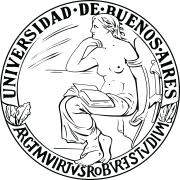Distributed probabilistic input/output automata: Expressiveness, (un)decidability and algorithms
| Title | Distributed probabilistic input/output automata: Expressiveness, (un)decidability and algorithms |
| Publication Type | Journal Article |
| Year of Publication | 2014 |
| Authors | Giro, S, D'Argenio, PR, Ferrer Fioriti, LM |
| Journal | Theoretical Computer Science |
| Volume | 538 |
| Pagination | 84-102 |
| ISSN | 0304-3975 |
| Keywords | Distributed systems, Interleaving, Markov decision processes, Nondeterminism, Partial observation, Probabilistic systems |
| Abstract | Abstract Probabilistic model checking computes the probability values of a given property quantifying over all possible schedulers. It turns out that maximum and minimum probabilities calculated in such a way are over-estimations on models of distributed systems in which components are loosely coupled and share little information with each other (and hence arbitrary schedulers may result too powerful). Therefore, we introduced definitions that characterise which are the schedulers that properly capture the idea of distributed behaviour in probabilistic and nondeterministic systems modelled as a set of interacting components. In this paper, we provide an overview of the work we have done in the last years which includes: (1) the definitions of distributed and strongly distributed schedulers, providing motivation and intuition; (2) expressiveness results, comparing them to restricted versions such as deterministic variants or finite-memory variants; (3) undecidability results—in particular the model checking problem is not decidable in general when restricting to distributed schedulers; (4) a counterexample-guided refinement technique that, using standard probabilistic model checking, allows to increase precision in the actual bounds in the distributed setting; and (5) a revision of the partial order reduction technique for probabilistic model checking. We conclude the paper with an extensive review of related work dealing with similar approaches to ours. |
| URL | http://www.sciencedirect.com/science/article/pii/S0304397513005203 |
| DOI | 10.1016/j.tcs.2013.07.017 |
Work Package:
WP1













